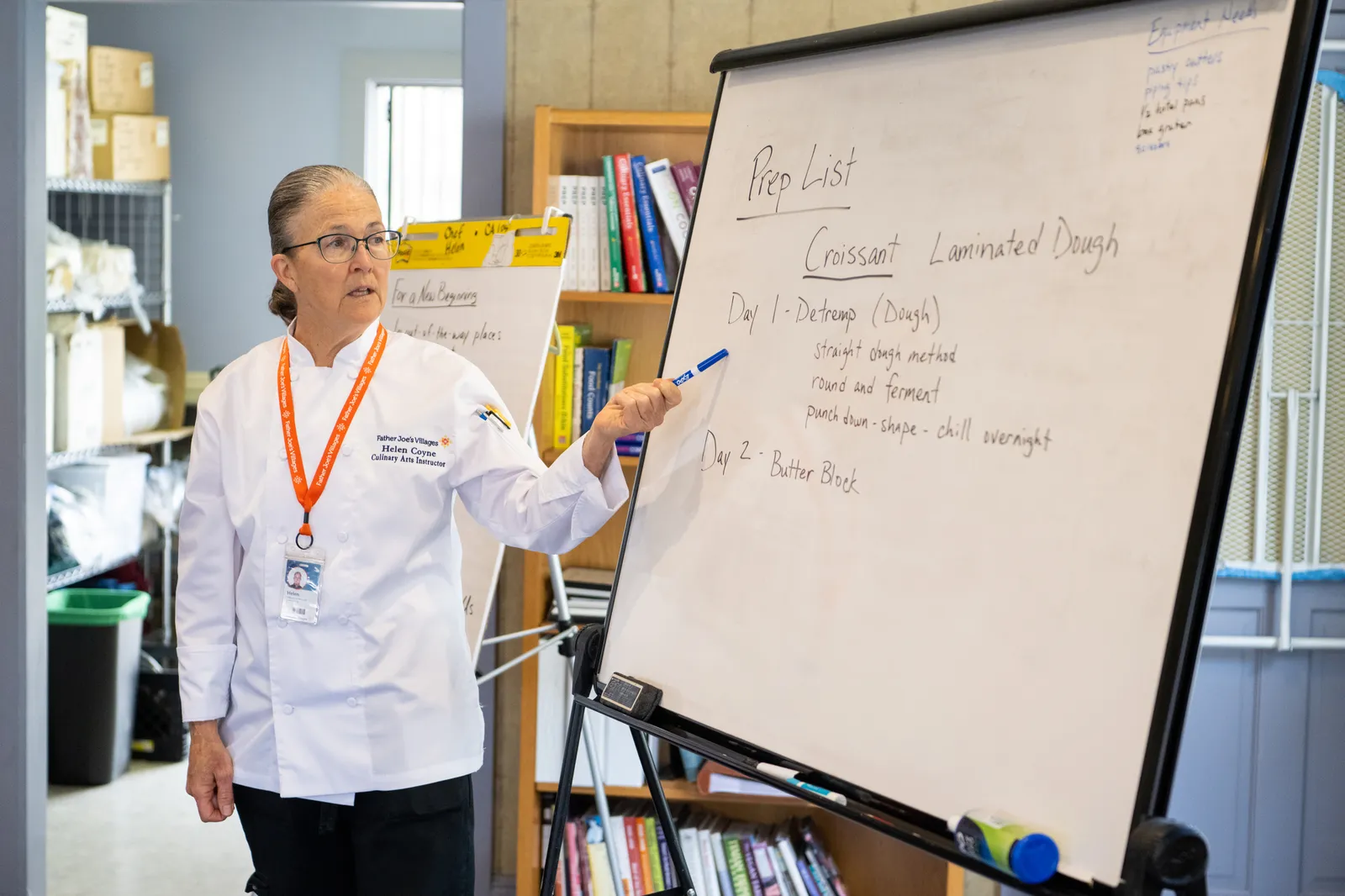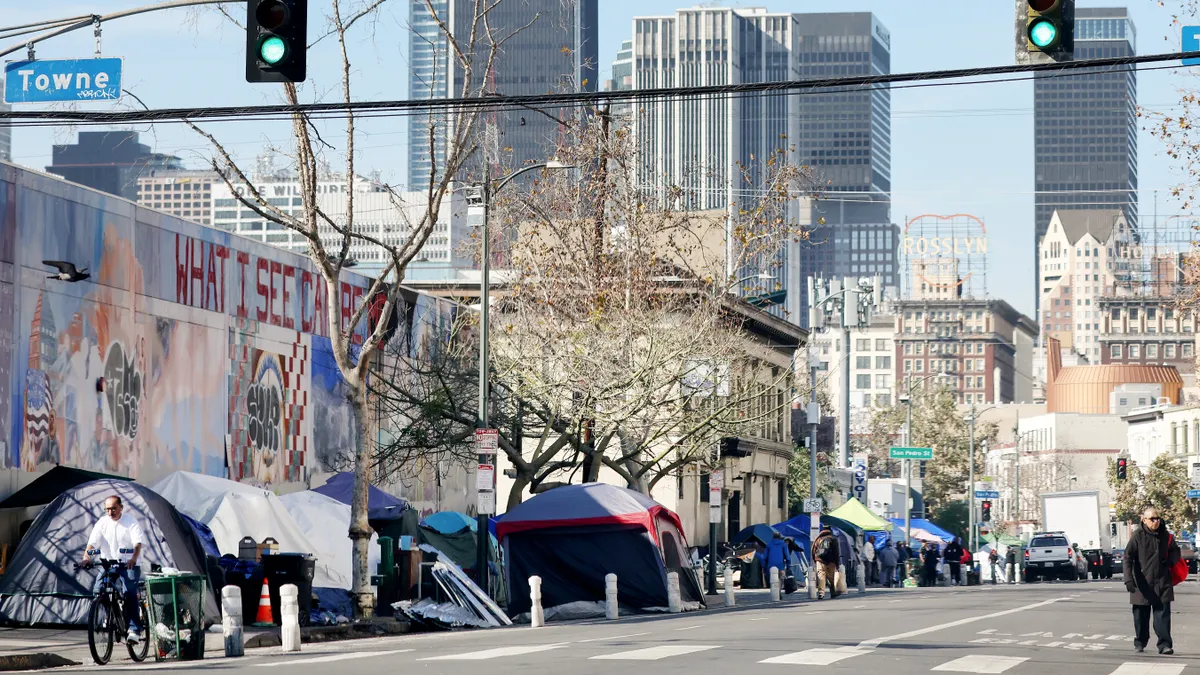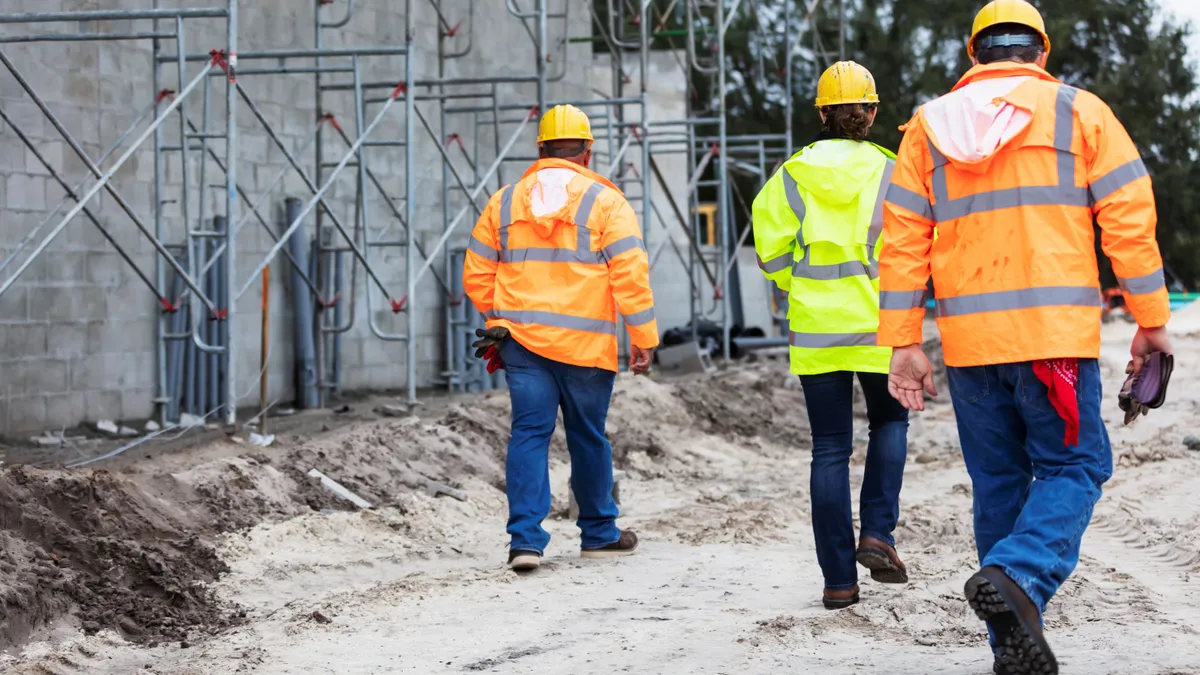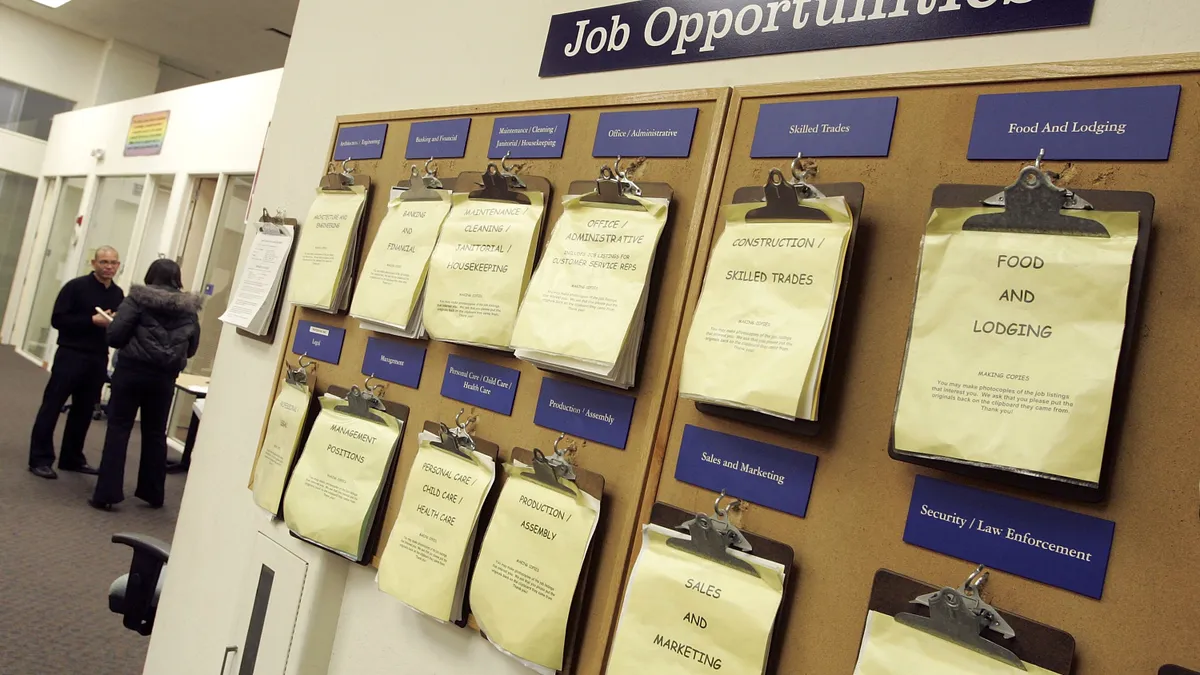Editor’s Note: This story is part of a series about employers reaching out to nontraditional workforces.
At Father Joe’s Villages in San Diego, a steady stream of students rotate through Chef Helen Coyne’s kitchen.
Coyne leads a three-month culinary vocational program for those who previously experienced homelessness and want to learn skills to help them succeed in the food service industry. Under her tutelage, students learn the basics of food and knife safety, proper hygiene and meal preparation, in the hopes of graduating into a position in the industry.
Housed on the campus of Father Joe’s Villages, the program gives students the opportunity to learn in a classroom but also to cook in an industrial kitchen serving 3,000 meals a day to shelter clients.
“Clients get real hands-on experience prepping and cooking large vats,” Coyne said.
While for some, it’s a foray into a new field, for others, it’s a return home to an industry they left behind, Coyne said.

“I have clients who have been in the industry before, so they come in with some experience. Some have a lot of experience, and they just need to spend a short time with me in order to get back into the kitchen and get their confidence back,” Coyne said.
Oskar Villarberg’s dad was an executive chef, so he spent a lot of time in the food industry growing up. But that experience was limited to front-of-house tasks, like working in the deli, not the kitchen.
“It’s been a really wonderful experience. I see a wonderful future in culinary education. It’s always important because even if you don’t think it’s a profession, you’re always going to have it in your back pocket to cook at home,” Villarburg said.
Tony Ramirez learned about the culinary program while staying at Golden Hall, a temporary bridge shelter operated by Father Joe’s Villages. His mom taught him how to cook growing up, but he has never done it on a professional level and hopes the program helps him land a job in the field.
“My experience with being homeless: It was a rough experience, and it’s still kind of rough,” Ramirez said. “I’m looking forward to seeing what’s in the future. Hopefully, I can make a difference in myself to become more productive and have a job and have everything I used to have before.”
The culinary arts program is one of a handful of vocational training programs offered by Father Joe’s Villages, and one of a growing network of resources designed to connect people who have experienced homelessness and are looking for work with employers.
Finding opportunities
For many who have experienced homelessness firsthand, finding a job isn’t just about putting in an application; it involves juggling mandatory appointments needed to navigate out of the shelter system, learning or relearning soft skills like interviewing and building a resume and interviewing when you might not have the financial means to travel to sites, explained Andre Peart, CEO and Founder of Untapped Solutions, an AI-driven platform to help untapped populations, such as those who have been incarcerated, experienced homelessness, dealing with mental health challenges or who are veterans.
Peart founded his company, what he calls “an Indeed for untapped populations,” while living in a shelter. He had struggled to find work after spending five and a half years in prison and ended up landing jobs working on a garbage truck and in maintenance.
“I did all the jobs I never wanted to do and never thought I would do,” Peart said.
His platform helps those looking for work match up their schedules with jobs that will accommodate them, and connects job seekers with outside resources like banking assistance, credit repair and healthcare services. It makes it easier for employers to reach untapped populations without investing a lot of energy, Peart said.
“Something employers will not tell you but they’re saying without saying is, ‘I don’t really want to do a bunch of education on how to properly hire the homeless,’” Peart said.
Bridging barriers
The U.S. Department of Veterans Affairs launched Homeless Veterans Community Employment Services in 2014 to expand the job assistance offerings it provided veterans and make it easier for employers to tap into that talent pool.
“Our mission is to provide housing for veterans who have experienced homelessness, but, in addition to that, we understand that support services and, in particular, employment are a really critical part of that process,” said Dr. Carma Heitzmann, the VA’s national director for homeless veteran community employment services.
Now, the VA employs about 220 workers across the country who are focused on helping veterans find jobs.They work alongside staff dedicated to helping veterans secure housing and permanent living situations, Heitzmann said.
“There are a variety of reasons that people may end up being homeless. We work with veterans who may have had either substance use challenges or mental health challenges or combinations. Those are also factors that we need to take into consideration making sure that those veterans have access to appropriate services to help them be prepared to go back into the workforce, if they haven’t in a while,” Heitzmann said.
Through Homeless Veterans Community Employment Services, VA staff team up with workforce agencies and faith-based and community organizations to provide necessary supports like healthcare, housing and social services to help veterans who have experienced homelessness to reenter the workforce.
“It’s all about asking employers to give folks a chance. And whether that’s a second chance or a third chance or a fourth chance, that’s part of what our staff do,” Heitzmann said.






















